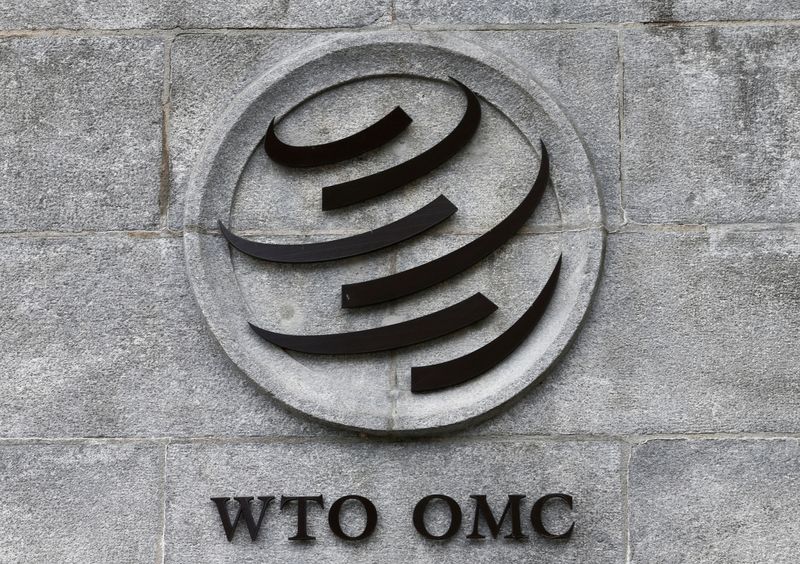By Emma Farge and Philip Blenkinsop
GENEVA (Reuters) -The World Trade Organization ruled on Friday that U.S. tariffs imposed on steel and aluminium imports by then President Donald Trump contravened global trading rules in a judgment immediately criticised by Washington.
In one of the most high-profile and potentially explosive cases to come to the WTO, the three-person adjudicating panel said the U.S. measures were inconsistent with WTO rules and recommended the United States bring them into conformity.
The United States said it strongly rejected the "flawed" interpretation and conclusions of the panel.
It could appeal the ruling, which would send it into a legal void because Washington has blocked appointments to the WTO Appellate Body, rendering it incapable of giving a judgment.
China said it hoped the United States would respect the panel ruling and "correct its wrongful conducts as soon as possible".
The office of the U.S. Trade Representative said in a statement that the United States would not "stand idly by" while Chinese overcapacity posed a threat to its steel and aluminium sectors and its national security.
"We do not intend to remove the Section 232 duties as a result of these disputes," it said, adding the panel report reinforced the need for WTO reform.
The U.S. steel sector also criticised the WTO panel, the Steel Manufacturers Association saying it supported the government's refusal to accept its conclusions.
Trump imposed 25% tariffs on steel imports and 10% on aluminium in 2018, using Section 232 of a 1962 act that allows the president to restrict imports if they are threatening national security. Free trade partners Canada and Mexico were later exempted.
The tariffs prompted several WTO members China to challenge the measure and on Friday, a three-person WTO panel issued its findings in the cases brought by China, Norway, Switzerland and Turkey. Cases brought by India and Russia are still pending.
Washington last year agreed to remove tariffs on EU imports, prompting Brussels to suspend the EU case.
The administration of President Joe Biden has otherwise kept in place the metals tariffs that were one of the centrepieces of Trump's America First strategy.
The case hinged on the exemption from global trade rules the WTO allows in cases of national security.

The central U.S. argument was that national security is for countries themselves to judge and certainly not something to be assessed by three WTO adjudicators sitting in Geneva.
Complainant Switzerland said the finding did not call into question the right of WTO members to take measures to protect security with broad discretion, but they did have to meet certain minimum requirements that could be examined at the WTO.